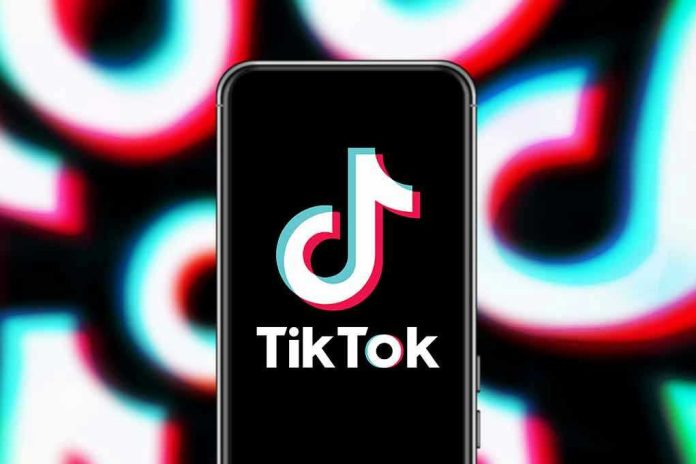
Minnesota’s lawsuit against TikTok exposes a social media giant accused of treating American youth like “digital nicotine”—but will this bipartisan crackdown finally hold Big Tech accountable, or just fuel more government overreach?
Story Snapshot
- Minnesota’s Attorney General is suing TikTok, alleging intentionally addictive features that harm children and teens.
- The lawsuit is part of a nationwide, bipartisan movement targeting social media companies for exploiting young users.
- Legal action focuses on TikTok’s algorithms and monetization tools, described as “digital nicotine.”
- Broader debates continue about government regulation, parental rights, and the line between safety and censorship.
Minnesota’s Lawsuit Targets TikTok’s Addictive Design
On August 19, 2025, Minnesota Attorney General Keith Ellison filed suit against TikTok, alleging that the platform’s features and algorithms are intentionally designed to addict children and young users. The complaint states that TikTok’s business model maximizes user engagement at the cost of mental, physical, and financial health, violating state consumer protection laws. This move follows similar lawsuits Minnesota filed in 2023 against Meta’s Facebook and Instagram, demonstrating a broader state-level campaign to challenge the practices of social media giants.
The Minnesota lawsuit stands out for its direct language, comparing TikTok to “digital nicotine” for youth. The action specifically targets TikTok’s algorithmic design and monetization tools, which officials argue are engineered to exploit young users’ vulnerabilities for profit. The case comes as other states—regardless of political affiliation—have launched comparable legal actions against both TikTok and rival platforms. This bipartisan approach underscores widespread concern about youth exploitation online, even as the nation’s political climate remains sharply divided on issues of regulation and government intervention.
Broader Context: Social Media, Safety, and State Power
Social media companies like TikTok, owned by China-based ByteDance, have faced mounting scrutiny over the past several years regarding addiction, mental health, and data privacy. The Minnesota lawsuit is part of a much larger story: states across the country have launched investigations and lawsuits accusing platforms of harming minors through addictive designs and insufficient safeguards. Federal lawmakers have also targeted TikTok, citing not only user harm but also national security risks related to its foreign ownership. In 2024, Congress even passed legislation forcing ByteDance to divest TikTok or face a U.S. ban, reflecting persistent bipartisan anxiety about the app’s influence.
The power dynamics at play reveal a complex landscape. State attorneys general use consumer protection laws to challenge the business models of global technology corporations, attempting to set legal precedents that could reshape the entire social media industry. Meanwhile, TikTok faces coordinated legal and political pressure not just from the states, but also from federal agencies and lawmakers. The resulting patchwork of lawsuits and proposed regulations raises questions about the proper roles of federal versus state oversight, as well as the impact on American families and free enterprise.
Short- and Long-term Impacts: Who Pays the Price?
The immediate effect of Minnesota’s lawsuit is increased legal scrutiny and negative publicity for TikTok, which could lead to temporary changes to platform features for users in the state. In the long run, however, this legal action could set important precedents that influence how social media platforms are regulated nationwide. Youth and families stand to be directly affected, for better or worse, by any resulting reforms or restrictions. The entire social media industry now faces the possibility of design mandates and broader regulatory intervention, while TikTok/ByteDance must contend with legal, financial, and reputational risks.
Economically, these lawsuits and potential regulations could cost social media companies billions in compliance and lost market access. Socially, the spotlight on youth mental health and digital addiction may encourage more parents to seek alternatives or demand greater transparency. Politically, the bipartisan drive for tech accountability demonstrates rare agreement, yet it also sparks debate about government overreach and the erosion of parental rights. Some experts argue that empowering parents with better controls is preferable to sweeping legal action, while others insist that only tough lawsuits will force Big Tech to prioritize user well-being over profits.
Expert Perspectives and Conservative Concerns
Industry experts widely acknowledge that TikTok’s algorithms are exceptionally good at keeping users engaged, raising serious concerns about addictive design, especially for children. Legal scholars see a trend toward using state consumer protection laws to challenge the business models of tech giants, while psychologists and pediatricians warn of mounting mental health risks among compulsive young users. For conservatives, the stakes are clear: unchecked Big Tech threatens not only children’s well-being, but also family authority, individual liberty, and the right to control what young people see online. This lawsuit, while bipartisan in intent, highlights the ongoing struggle to balance innovation, free expression, and the protection of American values from both corporate and government overreach.
Minnesota Sues TikTok Over ‘Addictive’ Algorithms Targeting Young Users https://t.co/SGjpmCxRJm
— Randy S MAGA. (@RandyRazor1972) August 20, 2025
As the legal battle unfolds, many Americans will watch closely to see whether Minnesota’s efforts lead to meaningful changes—or simply more bureaucracy and intrusion. For now, the fight over TikTok is a stark reminder that when it comes to protecting youth and preserving freedom, vigilance remains essential, and the debate over who should set the rules is far from settled.
Sources:
Minnesota Attorney General Keith Ellison to sue TikTok, arguing app harms kids – Star Tribune
Minnesota Attorney General sues TikTok for preying on Minnesota young people – MPR News
Minnesota to sue TikTok, AG Ellison announces – KSTP
Minnesota Attorney General’s Office: AG Ellison Sues TikTok for Preying on Young People



